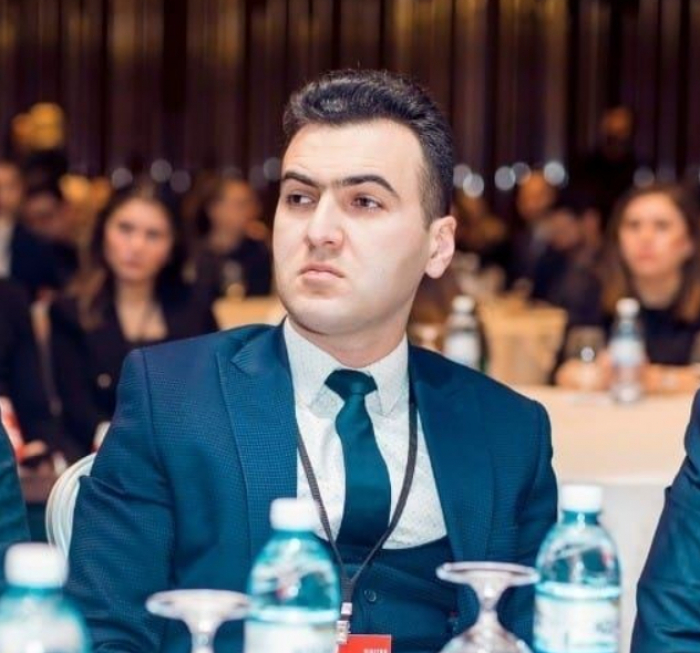Murad Isayev: “Marketing and advertising strategies should be developed to attract international and local tourists to the liberated areas”
Protection of the environment in our liberated territories, observance of ecotourism standards and proper use of the region’s potential in this regard are important factors of economic reintegration. The mass return of the population to our liberated territories, the creation of settlements there and modern infrastructure returned Karabakh to our society. However, the mass settlement of these territories, at the same time, the growing international interest in Karabakh and the desire of foreign tourists to travel, make the establishment of standards for tourism, especially ecotourism, in the region urgent. Opinions and proposals of experts and scientists on this topic are interesting to our society.
Our interviewee is Murad Isayev, deputy chairman of “Yaddash” Maarifchi Youth Public Union, entrepreneur, eco-activist.
– How do you evaluate the measures implemented within the protection of the environment, including water bodies and their bioresources, as well as other natural resources in the liberated territories?
-Measures implemented to protect the environment and natural resources in the liberated territories in accordance with the principles of “green growth”, it is important to ensure environmental and economic sustainability. These measures include ecological restoration of areas, cleaning of water bodies and protection of bioresources. Reforestation and land clearing contribute to the restoration of ecosystems and the preservation of biological diversity.
The use of renewable energy sources supports economic development while protecting the environment. By increasing the potential of ecotourism, the economic opportunities of local communities expand and the tourism sector is revived. The creation of nature reserves and national parks are important steps to protect biodiversity. At the same time, anti-poaching measures are aimed at protecting water bodies and wildlife. Educating local communities and the population supports increasing environmental knowledge and environmental protection.
– Taking advantage of the potential of ecotourism by following the principles of “green growth” and thereby contributing to the effective reintegration of those areas is also profitable from an economic point of view. It is also reported that the touristic potential of that region is high. From this point of view, what steps should be taken to develop ecotourism in those areas?
-These measures implemented with the cooperation of government and non-government organizations ensure sustainable development in accordance with Azerbaijan’s “green growth” strategy. This approach accelerates the ecological and economic reintegration of liberated areas.
Several steps should be taken to develop ecotourism in liberated areas. First of all, cleaning and restoration works should be carried out to improve and restore the ecological status of the areas. The infrastructure of natural and historical places attractive for tourists should be developed, roads and transport facilities should be improved. Involving local communities in ecotourism activities and providing them with training in this area is also important. At the same time, information about the benefits of ecotourism should be disseminated through environmental awareness and publicity campaigns. National parks and protected natural areas should be created and suitable conditions for ecotourism should be provided in these areas. Finally, marketing and advertising strategies should be developed to attract international and domestic tourists.
-Education of the population relocated to the regions, ecotourism enthusiasts, amateur fishermen and other groups in terms of environment and ecotourism is the need of the day. What actions are needed in this direction?
– Within the framework of the Great Return, a number of creative actions can be implemented to organize environmental and ecotourism educational actions for the population and various groups. By organizing environmental festivals and open-air seminars, involving local and foreign experts can be effective in raising awareness. Environmental knowledge should be increased for children and adults through interactive training and environmental games in schools and community centers.
To draw attention to eco-friendly activities, trips should be organized along local ecotourism routes and trainers should explain the importance of ecotourism on these routes. Educational materials should be shared through digital platforms (mobile apps, social media campaigns). Informative brochures and video lessons should be developed for recreational fishermen on fishing regulations and their impact on ecosystems. Environmentally friendly behavior should be encouraged for local businesses and tourists through eco-certification programs. Finally, permanent exhibitions and demonstrations on ecosystem protection and sustainable tourism should be organized by creating local environmental centers and museums.
A number of measures can be taken to prevent illegal hunting and poaching, to protect bioresources and aquatic life in liberated areas. . First of all, control and monitoring systems should be established in the areas using modern technologies. This can be done through drones, cameras and other surveillance equipment.
-Measures related to the protection of bioresources and living things in water basins are also important in the liberated areas. What measures can be taken to prevent illegal hunting and poaching? What are your suggestions?
-Regular patrol services should be organized in the areas and specially trained protection groups should be formed to fight against poaching. Anti-poaching awareness campaigns and training programs should be conducted with the participation of local communities. Strict punishments and fines should be imposed on those involved in illegal hunting, and the execution of these penalties should be ensured. At the same time, alternative sources of income should be provided to the local population to promote ecotourism and legal hunting activities.
Cooperation between governmental and non-governmental organizations should be strengthened and international experience and resources should be used to combat poaching. Special protection programs should be developed and implemented to restore and protect the ecological status of water bodies. Finally, with the support of the public, rewards should be assigned to those who inform about poaching cases, and active participation of the society in this issue should be ensured.
The article was prepared within the framework of the “Ecotourism standards in liberated areas” project implemented by the Public Union of Integration to the Globalized World with the financial support of the State Support Agency for Non-Governmental Organizations of the Republic of Azerbaijan. The position of the author or the interviewee and the position of the State Support Agency for Non-Governmental Organizations may not be consistent.


